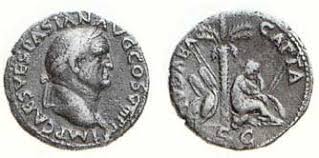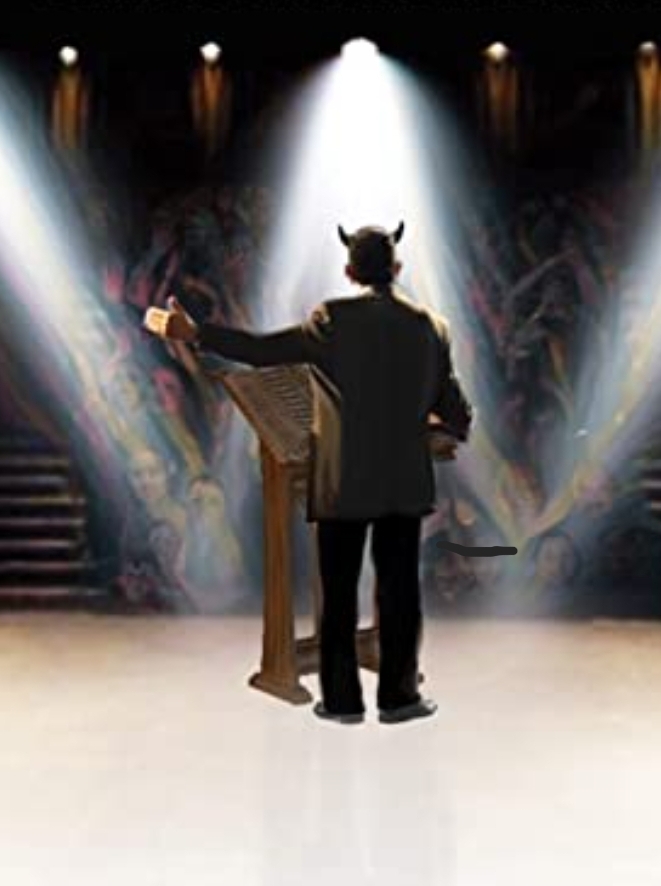Who do you say you are?
I have a friend whom I’ve known for a long time. After high school, he went into the Army and after that went straight into the Police Academy. He is the epitome of a soldier: happy and cheerful while off-duty but serious and orderly on-duty. He might as well walk around with a sticker on his forehead that says, “I am a cop”.
Whenever we would go out to the movie theaters or bars or diners, we would inevitably strike up conversations with total strangers. We would get to talking and people would ask questions to get to know us better and have a better sense of who we were. One of the questions would always be “what are you?”. Now, in our neck of the woods, that question was always in reference to ethnicity or nationality. His answer, however, would always upset me because I knew where it would inevitably end up. He would say, without missing a beat, “I am a cop!”.
Who do people say you are?
At this point, the conversation would take a sudden downturn. The tone would turn serious. The girls would get scatter and we would end up by ourselves at the counter. Again. For my friend being a cop is not just his profession. It’s who he is. His identity is built around his role, his profession. His reality is shaped by and constructed around his contributions to society. Everyone that knows him thinks of him as, introduces him as, and even stores him in their phone, jokingly and lovingly, as “the Cop”.
The Great I AM
In Scripture, we have countless examples of Jesus describing Himself beginning with the words “I am”; it was this above all, that enraged the religious people of His time more than anything: only God could utter those words and here he was, the son of a carpenter, using the “Lord” form when speaking of Himself. Jesus’s self-identity was clearly stated, in black on white, as inseparable from the Identity of the Father. So why would he ask his disciples, “who do the people say that I am?”. Was He suddenly unsure of His Deity, did He suddenly become sensitive to what the blogosphere of the day wrote about Him, or was He probing for the Truth among his disciples?
Some answered him and said “they say you are Elijah or one of the prophets”, others said “they say you are John the Baptist”. Then Jesus asked and said “but who do you say that I am?”. Simon Peter turned and answered “You are the Messiah, the Son of the living God.” The Lord answered him saying “Knowledge did not come from within you but as a revelation from the Father in Heaven”. There it was, the Rock upon which He would build His Church, the Truth of the Gospel in the flesh!
Who do you say that I am?
But what about us: who do the people say that we are? Can they see who we belong to? Is our life a “Living Epistle, easily read of all men”? Do our friends, co-workers and acquaintances know of us as “My friend John” “Bill the Accountant”, “the real nice guy next door” or do they know us as we should be known: followers of Jesus Christ!
Tell me who I am
For many people “who the people say we are” carries much weight in their lives. From who to marry to where to live to what school to attend and what to major in, to where to work… even where to worship. For some, other people’s opinions not only shape actions but self-image and identity.
As children, our parents’ opinions and statements quietly and progressively shaped our self-image, our self-worth, and our identity. For the fortunate among us, their words informed us that we are special, loved, treasured, pretty, smart, talented, thoughtful, kind, adored, considered, appreciated, valued. For the less fortunate, their words informed us, at best, of not being those things. Regardless of which one was our reality, we listened, more carefully than they thought we did, and we made their words our internal mirror.
Who does God say you are?
By the Grace of God through Jesus His Son, our old mirrors have been smashed to the floor, the shards crunched, recycled, re-kilned, and remade in the Image of Jesus. Where there was pain, now there’s healing. Fear give way to hope. Just as hate is replaced with Love lack is filled with abundance. Guilt is smothered by redemption the same way sin is drowned in forgiveness. Ignorance is overpowered by Wisdom as shame is robed in honor. And, as always, Life overwhelms Death and the Grave through our Lord Jesus Christ.
Does it show?
So our question to ourselves therefore must be: how much of this can and do people see in us? When looking at us, do they see Him? When they wonder what we are, do their own thoughts immediately answer their inquiry? Does their internal dialogue say to them “He’s a Christian”, “she’s Born-Again” or does it say “He’s Hispanic”, “She’s a Feminist”, “He’s a Teacher”, “they’re Republicans”.
Great. You found God now!
For many of us, our biggest struggle in our testimony is not with strangers on the train or the lady in front of us in line or the customer service rep. on the phone. No, our struggle is with those who are intimately familiar with our inner workings, family members, friends and co-workers alike. They grew up with us and saw us and knew us for far too long for them to simply believe an “encounter” changed us so drastically.
Not impressed
Whether you were a “Christians” in name only or from another religion, coming home to share our new-found Faith is no small task. Everyone is more than ready, willing, and able to put your new identity to the test. They still remember where all your buttons are, what gets you going the most. Your Faith is questioned, prodded and tested. Your every word weighed, and measured everyday for an opportunity to say the dreaded “…and you call yourself a Christian?!”
Speak life
It is what we do in these very moments that will echo in eternity. Not only for us but for those to whom we are witnessing. G.K. Chesterton said, “it is not that the Christian ideal has been tried and found wanting; it’s that It has been found difficult and therefore left untried”. If we truly believe that everyone needs Jesus then we must act accordingly: we must live a life that shows that living for Jesus is not only possible but pivotal: it not only influences who you are now but where you end up later; they must see that; that anyone can accept Jesus.
No matter where or who you’ve been; that living for Jesus means living an overcoming life: not free from trouble but free from worry; that living for Jesus doesn’t mean perfect simply a work in progress and that He accepts us and loves us as we are not who we will become; living for Jesus means living as Jesus, no longer we that live, but Christ that lives in us.
Who do the people say that I am? Click To TweetThe called-out ones
Living for Jesus has to be seen as the only possible alternative to their unfulfilled, empty, search for that lone yearning that cannot be described, cannot be expressed, cannot be named, cannot be identified: a yearning “too deep for words”. They have to look at us and see that there’s something about us that is different, that is special, that is desirable: a Peace surpassing understanding, a sweet reasonableness, a giving Spirit, a confident humility, a noble serenity, an unrelenting patience, a quiet mind, a pervasive diligence, a Truthful tongue anointed with boldness and Love, and a will that brings all thoughts and deeds into submission to the perfect Will of God.
People have to see us and want what we have! The logic is quite simple: what we have is of greater quality, better priced, longer-lasting, better warranty and more readily available than anything anyone can promise, think, imagine or deserve. Our identity has to be physically, mentally, and psychologically indistinguishable from the Faith and the Savior we profess.
Living Epistles
If we truly profess that living for Jesus is not only possible but desirable then we must believe that people want to see a life well-lived for Jesus; their Creator built them with a yearning for more. Setting “eternity in the hearts of men” God left a “Jesus-shape void” in their hearts and minds. We must show that the source of all of our desirable qualities is not us. He filled our void. We found the missing puzzle piece. The Bible says “by this shall they know that you are My disciples, that you have love for one another!”.
We need to show the Love of God. Show them that what we are and who we are is inseparable from whose we are. We must show them that perfect Love casts out fear, perfect Love is kind, gentle, remembers no wrong, believes all things, hopes all things. Let’s not tell people what we believe, let’s show them what we believe: they’ll be able to argue what you say but they won’t be able to argue what they see you do, how they see you live, “a living Epistle, easily read of all men.” Scripture teaches us that we should let them see your good works so that they will glorify your Father in Heaven.
Easily read of all men
Far too many people build their lives around others. Not only that but what those people say of them. Some say, “I am so-and-so’s fill-in-the-blank”. Others say, “I am from such-and-such a place”. However, as Christians, we are called to be there for them. Inevitably, when they are disappointed by fallible people, let down by loved ones, left behind by a significant other or when reality doesn’t match their mental construct, we are called to be there, living a life that points to Jesus.
When they fall apart, lose their way, and experience a moment of loss, our lives should be there preaching. Preaching silent sermons of what Jesus can do if you would just invite Him in. We have to be the kind of people that people want to talk to. We are to be approachable. What if that means being funny, good listeners, and sympathetic? Be it! Perhaps it means being empathetic, loving, patient, giving and kind. Make it happen. They shouldn’t confuse us for Christians. They should confuse us with Christ!
Is this who I am?
Who do the people say that we are? Are we quick to anger, slow to listen, men and women of compromise, “anything goes” or are we the kind of people that when someone is telling a dirty joke at work near you they say “sorry” and move away a bit further? Are we Peacemakers or are we rabble-rousers? Do we invite quarreling or reasoning?
I’ve been worse
Showing people who we are takes lots of practice and courage. I remember my first attempts at witnessing to people usually went one of two ways: either I was overzealous and would overwhelm and scare them with the tome of information I had just learned or I would give them a list of all the things they were doing wrong in their lives, give them the ole Fire & Brimstone routine and send them screaming down the street. Baby steps.
Praying for better
But in all seriousness, the Bible teaches us that “a Prophet is never accepted in his own house”. For all these people in our lives that knew us as the “old” us. Showing up to work one morning or coming home from a “Open Tent Revival” as a Born-Again-Christian is quite the relational monkey wrench! We can’t wait to tell them of God’s Grace and what He has done for us. To tell them how our lives are forever changed.
Cursing and foul language are frowned upon. Lewd comments no longer accepted. Furthermore, the sinful lives we once shared can no longer be the basis of our relationship. Family and friends have seen us at our worst. The countless hours together gives them superpowers. They know what we will say before we say it. They’ve always taken us at our word, believed what we said and trusted our opinions. Now “Born-Again-Christian” is something that they cannot reconcile with the person they once knew.
Royal Priesthood here I come!
I encourage you to let that be your testimony! Let this Wisdom, that seems like foolishness to the world, be our badge of honor! The Apostle Paul teaches us that we are a “Peculiar People”: let this awkwardness be our defining characteristic! Our goal is to be loving. When others are hateful we must be peacemakers: when others are looking for arguments and quarreling, let us be of a “sweet reasonableness”.
When others speak gossip, let us bring restoration. If others bring only insult, let us only compliment. In the same manner, where others judge, let us be mindful that we were all once “the least of these”. Let it be said of us that we “Speak Life”. That we are a weird and peculiar. That we are a counter-current, group of outsiders. Christians! And if you agree, Let us say: Amen!











